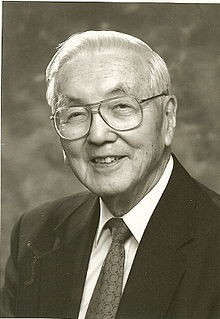
'The staff agreed to name the paper the Heart Mountain Sentinel for several reasons," Hosokawa writes in Out of the Frying Pan, his memoirs of life in the internment camp and beyond. "'Sentinel' is a good, traditional newspaper name. Heart Mountain stood, in fact, like a sentinel over the camp, and we saw the paper as a sentinel watching over the rights and interests of its readers."
The first issue was published on October 24, 1942. Hosokawa was its editor. Among the dozen or so fellow "campers" who worked under him, there were a few professional journalists: Haruo Imura, the paper's managing editor, had worked at Japanese American newspapers in San Francisco, and Louise Suski, the city editor, came from the Rafu Shimpo, a Japanese paper in Los Angeles. But most of the staff had little or no reporting experience.
They were paid a monthly wage of $16--Hosokawa, as editor, received $19 per month. Converted military barracks served as their office, which amounted to a single room twenty feet wide and 120 feet long. "We had a few benches and a few tables, that's about all," Hosokawa says.
There was no printing press within the camp, so the first incarnation of the newspaper was a mimeographed newsletter, notifying residents of simple things such as weather forecasts and where to go for medical services. Eventually, Hosokawa worked out a deal with the Cody Enterprise, another weekly newspaper in the area, to have the Sentinel published on their equipment.
In time, a regular schedule developed at the Sentinel. Throughout the week the typewriters clacked away in the makeshift office; on Friday afternoons, the staff would gather to paste up the copy and then send it off for printing. The presses would churn out 7,000 copies of each issue, which would then be distributed free of charge to the camp's occupants.
When a barbed-wire fence was erected around the camp, the Sentinel found its first big story.
"The camp was out in the desert," Hosokawa says. "The WRA came and said we have to put up a fence. And there was a lot of unhappiness in the camp about the decision."
The newspaper published an article explaining why camp occupants opposed the fence. If the government insisted the fence was for their own protection, the paper noted, why were the guns of the watchtower guards pointed inside rather than out?
"The WRA could understand that, but they were under military orders,
so the fence went up anyway," Hosokawa says.
Fenced in